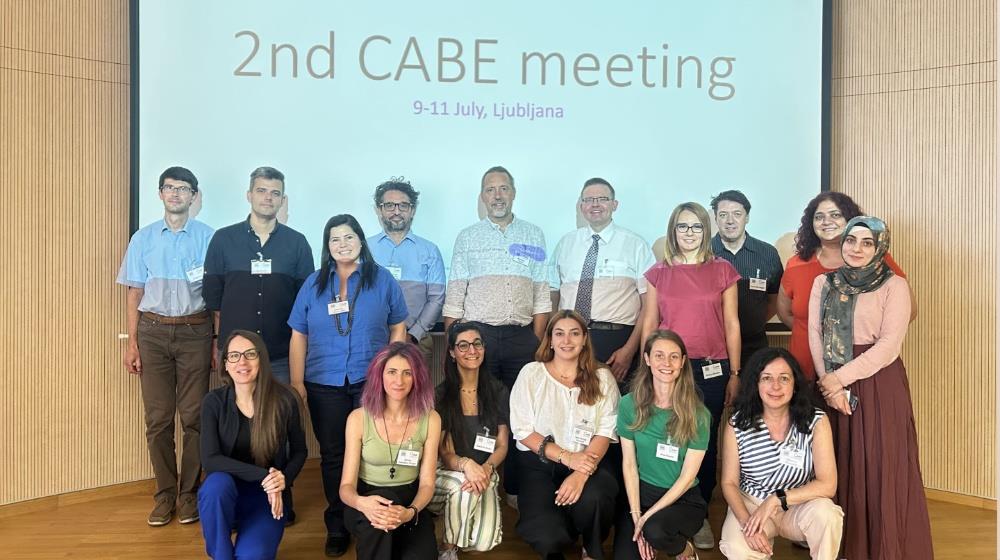Organisations from Cyprus are participating in a European programme on promoting circular approaches in the built environment (CABE), that aims to develop and pilot circular solutions for the built environment through the reuse of construction and demolition waste, according to a press release by the KyklOIKOdromio.
The Cyprus network, “in this very important project”, it said, comprises the Cyprus University of Technology (CUT), the KyklOIKOdromio and the Municipality of Strovolos.
“The aim of the project is to develop and pilot circular solutions for the built environment through the reuse of construction and demolition waste (CABE)”, it adds.
According to the press release, the second official meeting of the stakeholders involved in the project Promoting Circular Approaches for the Built Environment (CABE), took place in Ljubljana in July and was hosted by the Slovenian National Building and Civil Engineering Institute (ZAG).
During the meeting, it said, the first results of the project implementation were presented, and the next steps were defined. “Of great interest was the study visit on the modern regeneration through sustainable renovation of the former Maribor Prison”, it adds. The building of the former prison in the city of Maribor, also known as Kaznilnica, was constructed at the end of the 19th century and is a protected cultural monument, it said, adding that after it ceased to function as a penitentiary facility in the 1970s, the complex remained inactive and abandoned. Since the early 2000s, however, “it has been gradually transformed into a space for cultural and artistic activities”. Today, the property is owned by several owners - the central and eastern part belongs to the Municipality of Maribor, the western part is used by the Regional Development Agency of Maribor (RRA Podravje-Maribor) and the southern part is under private ownership, it said.
It notes that the current use of the building combines administrative functions with plans for future reuse as a space for innovation and cultural creation. “The reuse of the complex is part of a wider vision to create a multi-purpose space dedicated to the creative industries, entrepreneurship and culture” while the city-owned spaces will be transformed into a business incubator and creative hub, the press release said. The private spaces are expected to host tourist units (hostel/hotel) and cultural structures, it adds.
“The renovation approach emphasises circular economy principles: reuse of materials, minimising the environmental footprint and intelligent use of architectural heritage”, it said.
A study visit was also carried out to the premises of the construction company Nigrad Maribor | JHMB, which applies circular construction waste management practices and reuses selected materials to produce new construction products.
During the meeting at the premises of the Regional Development Agency for Podravje - Maribor, it is noted, the Cypriot project team coordinated a stakeholder engagement workshop on construction waste and demolition management challenges and the principles of the circular economy in the Slovenian community. It said that at least 10 representatives from national and public authorities, business support organisations, higher education institutions and researchers, NGOs and others relevant to the construction sector participated.
Based on the results of the workshop, a report on the results will be prepared for the case of Slovenia, it said, while, after conducting similar meetings in other participating countries of the project and collecting the overall data, the results of the project will be presented by 2027, it adds.
“The CABE project is ongoing, continuing to collect data and experiences from partners. The meeting in Slovenia enhanced knowledge around the challenges and opportunities of circular waste management, contributing to the formulation of workable solutions for the built environment”, it said.
It notes that the project is co-funded by the European cooperation Driving Urban Transitions to a sustainable future (DUT), while in Cyprus, the project is co-funded by the Research and Innovation Foundation and the lead organisation for the implementation is the Cyprus University of Technology.
(Source: CNA)









